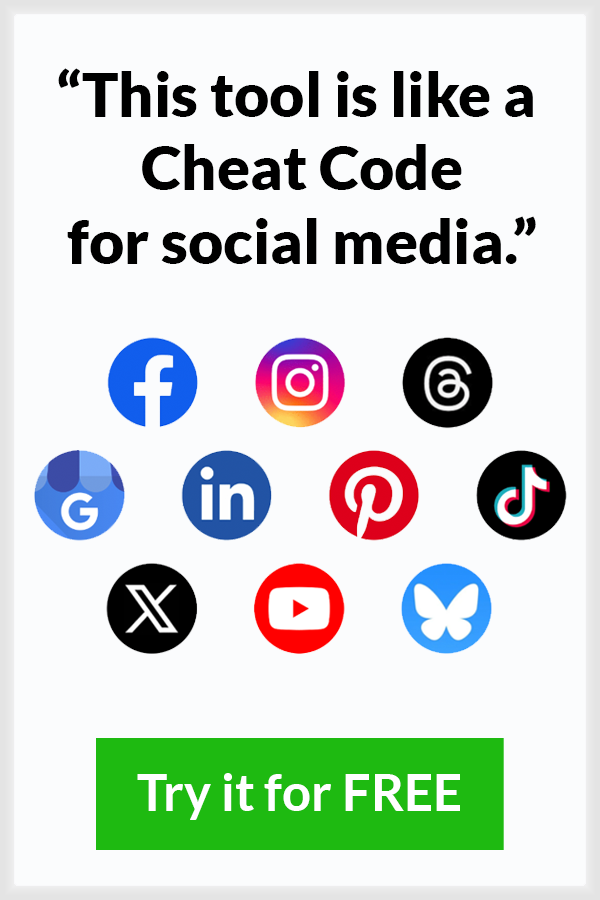
 Want to quit your job and work for yourself?
Want to quit your job and work for yourself?
You can -- and Yaro Starak is the man to tell you how!
Who's Yaro?
He's the the founder and writer of Entrepreneurs-Journey.com -- and one of the first bloggers to EVER make it as a pro, raking in over one million dollars from blogging.
And the best part about his years of experience and success as a blogger? He's sharing ALL of it with you!
Since 2005, Yaro has made it his mission to show others how to make a full-time income from blogging part-time.
Ready to learn his secrets?
Below you will find tips and tactics from my conversation with Yaro that YOU can implement immediately.
>> Click to Tweet <<
HERE'S How to Quit Your Job and Make a Living as a Blogger
Take a poll.
Ask your friends whether quitting their jobs, doing what they love, and traveling whenever and whereever they want sounds appealing.
You already know the results, don't you?
Yaro Starak is living proof that making your living online is not just a tempting dream -- it's a real possibility.
Unfortunately, though, most who try blogging for a living FAIL.
Want to know why? Here's what I found --
I asked Ann Smarty's MyBlogU members to give us their best insight on why so many blogs go under and never really get traction.
Here are the reasons they cited... and Yaro’s response to each:
REASON 1: Not providing content that's valuable or fresh
YARO: This applies, for sure, but there is a step before that. You define what “valuable” is by deciding who you are serving.
If you don’t know who your audience is and what they want, then you're guessing about what MIGHT be “valuable” to them.
One person’s treasure is another’s trash. You must give your readers the content they say is valuable.
REASON 2: Not using social media effectively
YARO: Social media is a marketing channel. It’s not the only one out there, but it can be a powerful way to reach your market.
I won’t say you MUST use social media – I grew my blog without it – but it can be an important marketing tool.
Definitely, don't depend on organic traffic from search engines (alone) to deliver visitors.
REASON 3: Not generating leads or building an email list
YARO: Failing to gather a mailing list definitely makes things more difficult. The old way of blogging was to build a massive list and sell advertising. That is very difficult to do today.
It is still possible if you publish a magazine and have a crazy amount of content. It is better to use the blog as a tool and use it in tandem with a list to sell products and services.
Email is a better direct response tool than a blog will ever be – but a blog builds trust and traffic. They go great TOGETHER!
REASON 4: Not realizing how difficult it will be
YARO: That is a part of the real reason blogs fail. You must be be prepared with the proper mindset to deal with the amount of work launching a successful blog will require.
Momentum is difficult to build. After you get started, things get easier.
Going into it without an understanding of how much work it will take is a major stumbling block, but it is just a symptom of a poor mindset. You must know WHY you are doing what you are doing, and you must have sufficient core motivation.
REASON 5: Not staying consistent and writing on a regular basis
YARO: "Not marketing on a regular basis” is probably more relevant today.
You need content, but you can write every day, and you will still FAIL without proper marketing. People must know you exist.
The internet is crowded, and you can’t count on people stumbling across your website by chance. You must be a marketer as well as a content creator, and you must get the right content in front of the right people.
For example, I know people who are amazing artists, but they loathe the idea of sales and marketing. That is why they are called “starving artists.”
REASON 6: Not giving to a community, but trying to take from one
YARO: The idea of giving before asking is a universal principle: The Goodwill Bank. You must make deposits if you want to make a withdrawal. You must create and demonstrate value.
Communities are not a be all and end all for marketing, though. You can build a business without ever joining a community – just buy enough advertising.
If there is a demand for something and you present good offers to the right audience, then you CAN make sales.
REASON 7: Not putting blogging as a priority, lack of time commitment
YARO: If blogging is your thing, and you don’t blog, you won’t get anywhere… that’s for sure. Blogs are effective long-term platforms for building an audience.
Other platforms can be quickly taken away. You own the blog and your list. Marketers always say the list is the most valuable possession, and your blog works in tandem to help you develop it.
With your blog and your list, you have a means of presenting and supporting your offers.
REASON 8: Not enough passion for the topic
YARO: That goes back to the Why and the Vision. If you don’t have enough desire, you will struggle because you just don’t care.
If it becomes something you only want to do to make money, you won’t have the fuel to keep going. Getting people into the right jobs could change the planet.
I help people who are trapped in jobs they hate find out how to do what they are passionate about.
REASON 9: Not focusing on the task at hand and trying to do too much at once
YARO: That’s a good one. It is definitely a cause of burnout, even if you have a strong WHY.
We should talk more about this.
The REAL REASON most blogs fail
Failure comes from an improper mindset.
And that is really good news. You see, your success is not dependent upon some outside force or the whims of other people.
Your success is dependent on HOW YOU THINK.
Here's what I mean:
Yaro has 2 GUIDING PRINCIPLES for making decisions in life and business:
- Know what you want, get really clear on that
- Use the 80/20 rule to focus on the small number of things that matter most
80% of your life is spent doing things that return you very little. Identify the most valuable actions you can take, do those, and ignore the others. You must deliberately say NO!
And always remember the Theory of Constraints: Find the point in your system that is most impeding your growth and open it up. You can only go as fast as the weakest point.
Here's how to quit your job and do what you LOVE
Once you deal with the most restrictive stuck-point, find the next one and work to relieve it. Keep going through the constraints.
Never stop improving. Never stop heading in your chosen direction.

Yaro's 3 Questions You Must Answer:
- What is your goal?
- What are the 80/20 components that can make that goal possible?
- Which of those things is not done? What are the constraints? What is lacking, and how can you work on the biggest block to my progress TODAY?
That way you never get distracted by all the things you COULD do. You know you only need to do that ONE thing you need to do in that given day.
I love saying “No” to things, says Yaro. I get more satisfaction from doing one or two things really well, than by trying to spin all the plates all the time.
>> Click to Tweet <<
10 Questions about Blogging for a Living
Next up, I asked the MyBlogU participants to imagine they had the chance to ask one of the world's most successful bloggers a single question -- what would that question be?
These are the things they most wanted to know... and Yaro's answer for each:
1. Do you ever get discouraged in blogging, and if so, what do you think or do to motivate yourself to continue?
Making a living online is a roller coaster. It goes up, and it goes down. You are going to have great days and not-so-good days.
Once you solve the money problem, you can drop a big stress load. If you’re not there yet, go back to your WHY and have faith in the system you are following.
Look at the trend to gauge your progress, not to a single down day or string of tough days.
2. LinkedIn just bought Lynda.com. Does that tell us there is a huge future for eLearning?
As long as people need to be educated there will be a need for learning. What is the best way to deliver it? -- that is the question.
The university model is being disrupted. It is no longer the most effective system for all situations. Lynda lets you choose what you want to learn… not for a degree, but for the skill outcome.
It is a long-tail approach to education. It is just-on-time skill building.
3. What is the writing process like for you?
I write about what’s going on in my life, so I never have writer's block. I know my topic.
Practice is the most important thing about writing. Keep doing it. Practice will get you everywhere.
In the end, it all goes back to your reason Why. You must develop and maintain motivation. I write about my life, and I try to help other people.
For me, that is enjoyable and it is easy.
4. What single habit has made the biggest difference in your success?
Other than my use of the 80/20 Rule and the Theory of Constraints, I find energy management to be huge.
If you can only find 2 hours each day to work on your goal, then you must make sure you approach that time with sufficient energy.
You can make sure to focus on that ONE thing, but you must have energy to concentrate on it.
An aid to energy management is to learn about your ultradian rhythms – those cyclic times during the day when you alternate between work and rest. Don’t force yourself.
After 2 hours of work on a single task, take a break, work another hour, then switch to a different task. Switch from brain-heavy tasks to something. Recover and come back.
Just be sure to approach your core activities in the time you have allotted. You still must give due attention to your ONE THING.
5. What was it like when you first realized you were going to be successful online?
I was about 24, not yet financially successful, and I was operating an online (proofreading) company. I was reading a lot – stories about entrepreneurs and personal development.
I wasn't following a career path (like every single one of my friends was doing), because I realized I would never gain real wealth by getting a regular job.
I saw the potential of the internet – that it was an easily accessible distribution channel – and that you really only needed to get a couple of pieces right in order to succeed online.
You need a product and good marketing. Once I realized that, I felt empowered… like I was in a secret club. I was frustrated that I couldn't tell my friends about it, though. They wouldn't believe me!
This club is way better than a typical job. Once you realize that, you are well on your way to success.
>> Click to Tweet <<
6. Is a blogger able to earn his/her living by blogging alone – without adding services, hiring out as a speaker, and such?
Blogging is a marketing channel, and introverts can be successful there. Use your blog as the base.
You can write books, build software, and do what you wish. Brilliant writers can do well without selling anything other than ads and sponsorships.
Some even produce just one ebook or course for a product. It is possible to make a living online in the simplest of ways.
7. When you first started, how did you initially get targeted traffic coming to your blog?
This advice isn't as relative today, but I wrote blog posts and connected with other bloggers. The same principle can still work, but you must look to niche communities.
High-profile bloggers aren't as accessible today as they were when I got started. Find masterminds where you can support one another.
Build bonds. Find up-and-comers in your industry.
8. What is your single piece of advice on how to do successful blogging?
Understand the marketplace you are trying to sell into. The more you know about your customers, the better you can meet their needs, the better you can communicate, and the better products you can provide to them.
You can research all you want, but you never really truly learn until you put an offer out there and see who buys. Find out why your offers fail, then adjust to get closer to see what succeeds.
You must find out what your audience wants badly enough to spend money on.
9. Is there a hidden key to success that big-name bloggers are privy to?
Until you have success, you think something is missing. Once you are successful, you realize all you really needed to do was combine 2 or 3 fundamentals and finally get it right.
The only secret is timing -- being in the right place at the right time. Bad timing will kill you, but you don't solve it by getting hung up on trend hopping.
Luck comes from being prepared when opportunity presents itself.
10. How important is SEO to a pro blogger?
The traffic is very important. The strategic application of SEO principles is not that important. Blogging is good SEO.
Most who go on to great success focus on high-quality content and marketing. Marketing attracts links naturally, and those links give you SEO benefit.
There are two types of brains in the world: Those who love to focus on finding keywords, and those who love to focus on content creation. Most of my audience are the creative types.
They want to build platforms based on great content and marketing themselves to build a personal brand. They will get traffic as a result of doing that.
Yaro went on to say,
"You are building a blog sales funnel – that’s the approach I teach. You want people to come to your blog, join your email list, go through a series of emails, buy a product, then buy more products down the road."
To get that to happen, they must engage with your content. Yes, you can do a quick keyword check to see if it is better to use one word than another, but I've not seen dramatic results from that. It’s not an 80/20 thing in the system I teach.
It is better to be a great copywriter than to be a great SEO. Your content must be written for readers not search engines. At the end of the day, SEO is for Google and Google is only one traffic source.
Great copywriting is for human beings, no matter where they come from!
>> Click to Tweet <<
Conclusion
To get more information about Yaro, read his full story.
To leave questions for Yaro or to share your own experience about how to quit your job and chart your own course, add a comment below.
When you tell us about your success, you encourage others to take a giant step forward!
Author's note: Many thanks to all who submitted questions and observations for this article: Ann Smarty, Arsen Rabinovich, Jennifer Peaslee, Gaurav Kumar, Bellaisa Filippis, Neil Ferree, Deepanshu Gahlaut, Adrienne, Marie Beausoleil, Bill Gelwick, Angela Alcorn, and Phil Turner.
____________________
RECOMMENDED ARTICLES:







ViewHide comments (10)